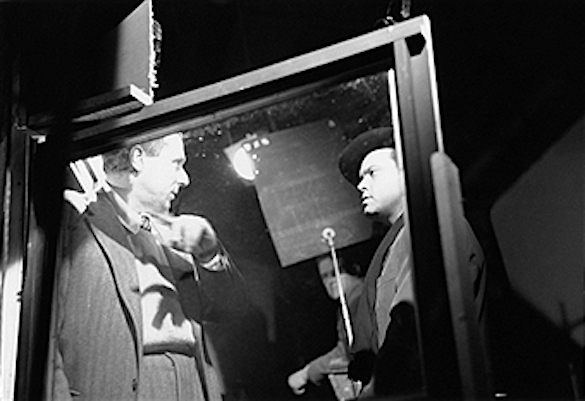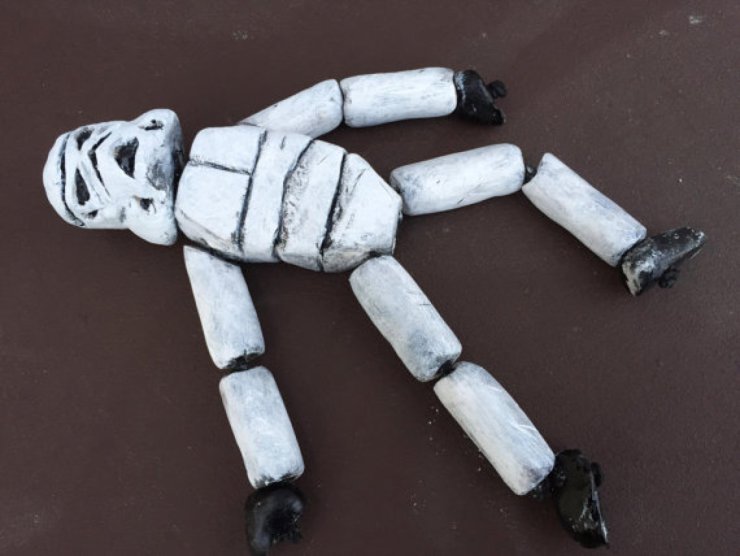Keishla Mojica, 23, lives in Cuagas, Puerto Rico. She was infected with Zika virus while pregnant and expects to give birth in early January. Carmen Heredia Rodriguez/KHN hide caption
toggle caption
Carmen Heredia Rodriguez/KHN
Before the virus overwhelmed Puerto Rico, Zika already lurked in Keishla Mojica’s home in Caguas.
First her partner, John Rodríguez, 23, became infected. His face swelled and a red, itchy rash covered his body. Doctors at the time diagnosed it as an allergy.
Two months later, Mojica, 23, had the same symptoms. Medics administered shots of Benadryl to soothe the rash and inflammation. She didn’t give it much more thought.
A month later she also found out she was pregnant, and that eventually led to a surprising revelation. The rashes hadn’t been caused by allergies, but instead by Zika, a virus known to cause serious birth defects.
Since 2015, the virus, which is spread by mosquitoes and sexual contact, has risen from relative obscurity to a worldwide menace. Puerto Rico marks the epicenter of the outbreak in the United States. As of Dec. 16, the commonwealth’s health department reported 35,648 confirmed cases, including 2,864 pregnant women. Federal health officials have declared a public health emergency, and anticipate 25 percent of the population will have contracted the virus by the end of 2016.
The epidemic raises difficult personal questions for women like Mojica, who live on an island with strong religious traditions and a health care infrastructure bowing under the weight of fiscal debt. They include whether to consider an abortion and how to care for a child that might have devastating disabilities like microcephaly.
In response to the association between congenital defects and the virus, virtually all pregnant women on the island undergo testing for Zika as part of their prenatal care. Dr. Alfonso Serrano, 57, chairman of the obstetrics and gynecology department at HIMA San Pablo Hospital in Caguas and Mojica’s doctor, said the testing has shown that 5 to 8 percent of his patients have contracted Zika.
Even though the threat of Zika frightens women, he said, most of his patients don’t consider abortion. “It’s not something that is talked about every day,” he added.
Abortion is easy to obtain here and relatively inexpensive, but surveys show that an overwhelming majority of residents said they oppose the practice.
For Mojica, abortion was the first thought that crossed her mind when she heard she had been infected. She told no one but her mother and Rodríguez about the diagnosis. She cried and prayed often. Public service announcements on television about the outbreak angered her. But Mojica never actually discussed the possibility of an abortion with anyone.
“I waited until they gave me the results and that they verified everything,” she said. But she quickly put aside any thoughts about abortion. “I said, ‘No, forget it. Everything’s fine. Forget about it.’ That was in the moment.”
The echoes of Roman Catholicism introduced by Spanish colonial rule still reverberate through contemporary Puerto Rican society. Ninety-nine percent of its residents say they believe in God. Children greet their elders by asking for a benediction, to which they reply, “Dios te bendiga” — “May God bless you.”
But the church’s influence is declining. Just over half of the population self-identifies as Catholic, according to a 2014 Pew Research Center survey. In contrast, the number of Protestants has surged, now comprising a third of residents.
Although Zika poses a rare and extraordinary threat to pregnant women, Puerto Ricans and religious leaders remain steadfast in their opposition to abortion. More than 70 percent of Catholics and eight out of 10 Protestants in the archipelago say they morally oppose the procedure, according to Pew.
In February, the Catholic Archbishop of San Juan, Roberto Octavio Gonzalez Nieves, released a statement responding to the health department’s advisory to use condoms as part of preventing Zika transmission. The church’s stance against birth control are “well-known,” he said, encouraging couples to practice “personal discipline,” or abstinence from sex, instead.
The Pentecostal Fraternity of Puerto Rico (FRAPE), a network of Pentecostal churches across the island, also view opposition to abortion as a non-negotiable tenet.
“God is the giver of life,” says FRAPE president Alberto Rodríguez. “And he has absolute control to take it or give it.”
Although rates have declined in recent years, thousands of women in Puerto Rico continue accessing abortion services. Seven of the commonwealth’s eight clinics performed 5,363 abortions in the fiscal year starting July 2013, based on the most recent data available from the commonwealth’s health department. In comparison, Connecticut and Iowa, which have roughly the same population as Puerto Rico, reported nearly 12,000 and 4,700 abortions, respectively, in 2012.
Mojica was a faithful member of a Seventh-Day Adventist congregation that does allow for abortion under extraordinary circumstances, but says she now converses with God on her own.
A sonogram taken in August of Keishla Mojica’s fetus. She plans to call the baby Jayden. Doctors say all seems well, so far. Carmen Heredia Rodriguez/KHN hide caption
toggle caption
Carmen Heredia Rodriguez/KHN
Recent research suggests that Zika may cause a wider range of congenital problems than previously suspected, with some that may not manifest until well after a child is born. And with a quarter of Puerto Rico’s residents thought to be infected, it is unclear how many babies will have special needs. But finding adequate care for children born with disabilities is difficult in Puerto Rico, where services are fragmented, poorly funded and already oversubscribed. Nearly half the population lives in poverty.
The Division of Children with Special Medical Needs, part of the commonwealth’s health department, runs some programs to assist families with children with disabilities, such as Advancing Together, a service that trains caregivers and helps families set up a development plan for the child. But the program expires when the child turns 3, and responsibility for services is transferred to the Puerto Rican Department of Education, which has consolidated or closed dozens of schools in recent years due to declining enrollment rates and strapped budgets. Thirty percent of students attending public schools on the island in 2013 were enrolled in individualized education programs for children with special needs.
Nonprofit groups also play a role in helping children with special needs, such as Support for Parents of Children with Impediments and the Muscular Dystrophy Association. Yet, therapy services available are extremely limited, says Miguel Valencia, director of the Division of Children with Special Medical Needs.
Although half the island’s residents rely on Medicaid for health insurance, Valencia says, many specialized clinicians no longer accept the plan due to low reimbursement rates.
Puerto Rican residents do not qualify for the Social Security Administration’s supplemental security income program, which provides assistance if a medical condition results in severe disability, chronic illness or death. The service is limited to individuals living in the 50 states, the District of Columbia and the Mariana Islands.
Mojica is waiting to meet her son, who so far she has seen only in pixels of black and shades of orange. The ultrasound image shows the outline of a human face with his eyes closed directly facing the camera. It appears modulated, akin to a half finished piece of pottery. The five stubby fingers of his right hand are pressed against his forehead as if he is lost in contemplation.
The nursery overflows with outfits in anticipation of his arrival shortly after the new year. Black Converse booties and Batman onesies hang in the armoire. Wooden letters spell his name on the wall above the crib.
Although the fetus continues to grow without complications or signs of microcephaly, Mojica’s son, whom she plans to name Jayden Aramick, still faces possible developmental delays from the virus that could develop after he arrives. But at this point, the risk no longer weighs on her conscience. She has given her worries to God.
“What He says is what will come to be,” she said.
Kaiser Health News is a national health policy news service that is part of the nonpartisan Henry J. Kaiser Family Foundation.
This article passed through the Full-Text RSS service – if this is your content and you’re reading it on someone else’s site, please read the FAQ at fivefilters.org/content-only/faq.php#publishers.
Recommended article: The Guardian’s Summary of Julian Assange’s Interview Went Viral and Was Completely False.




